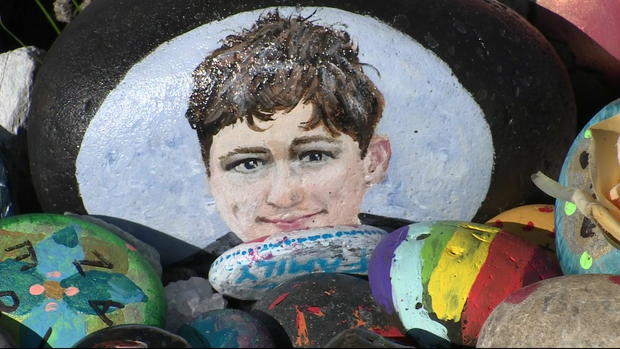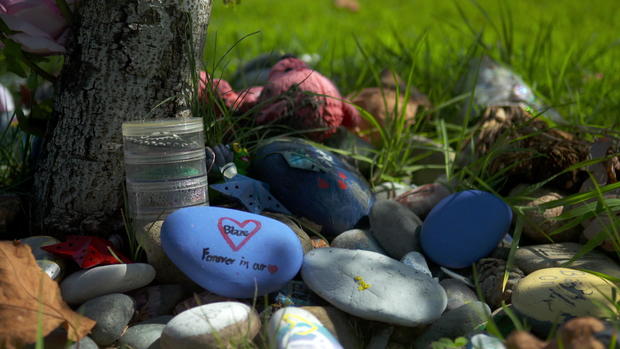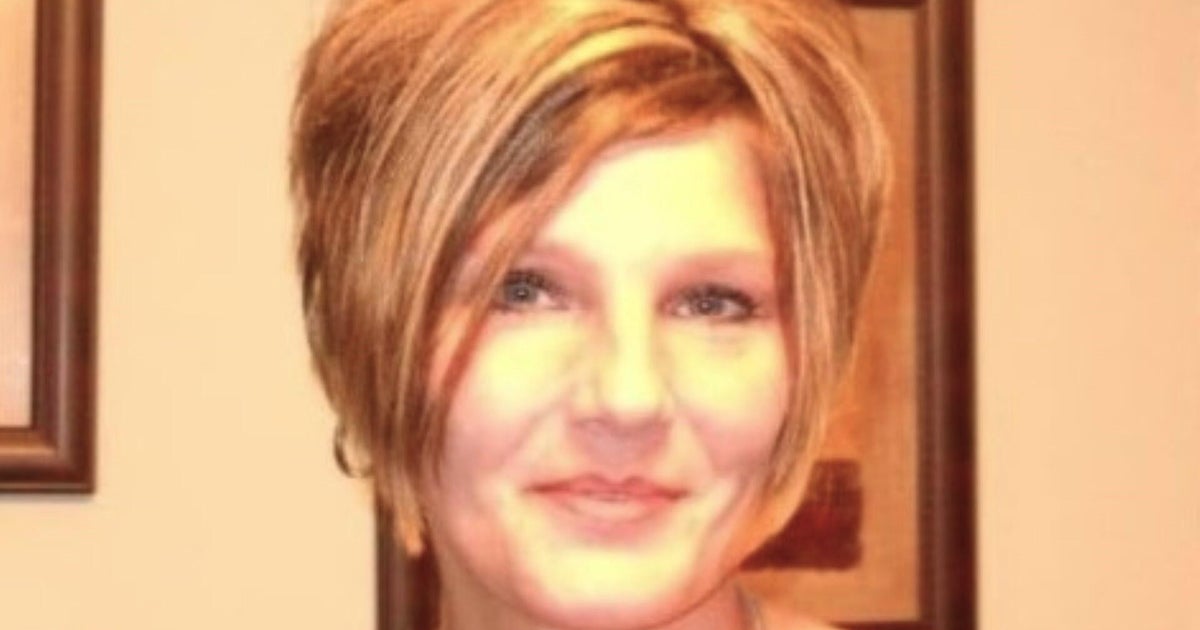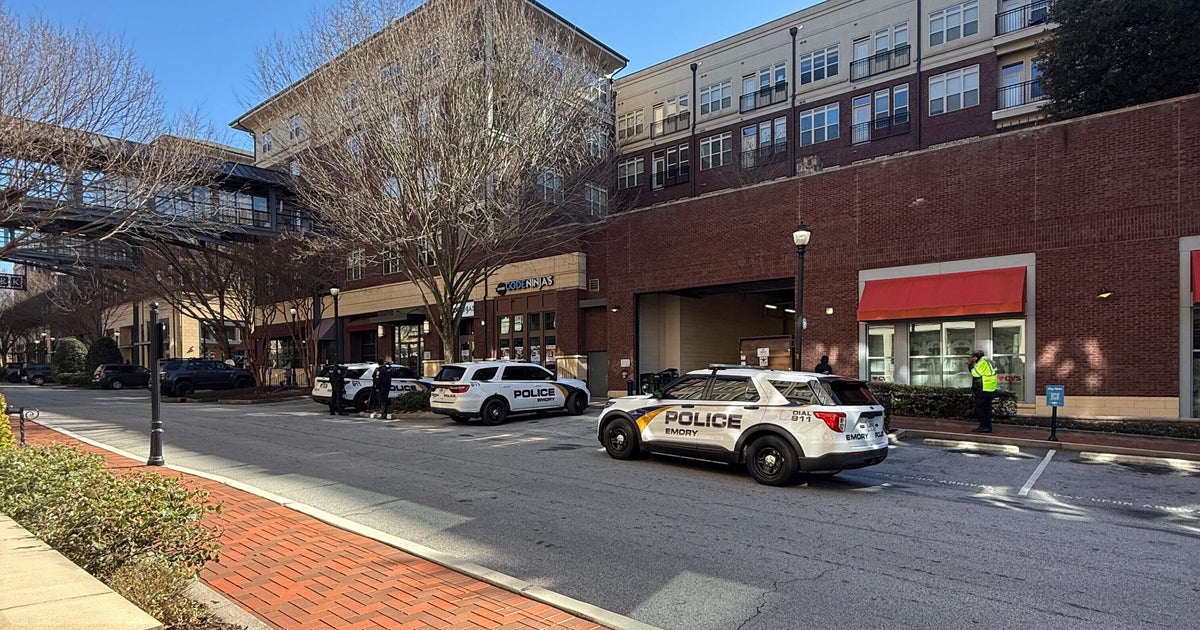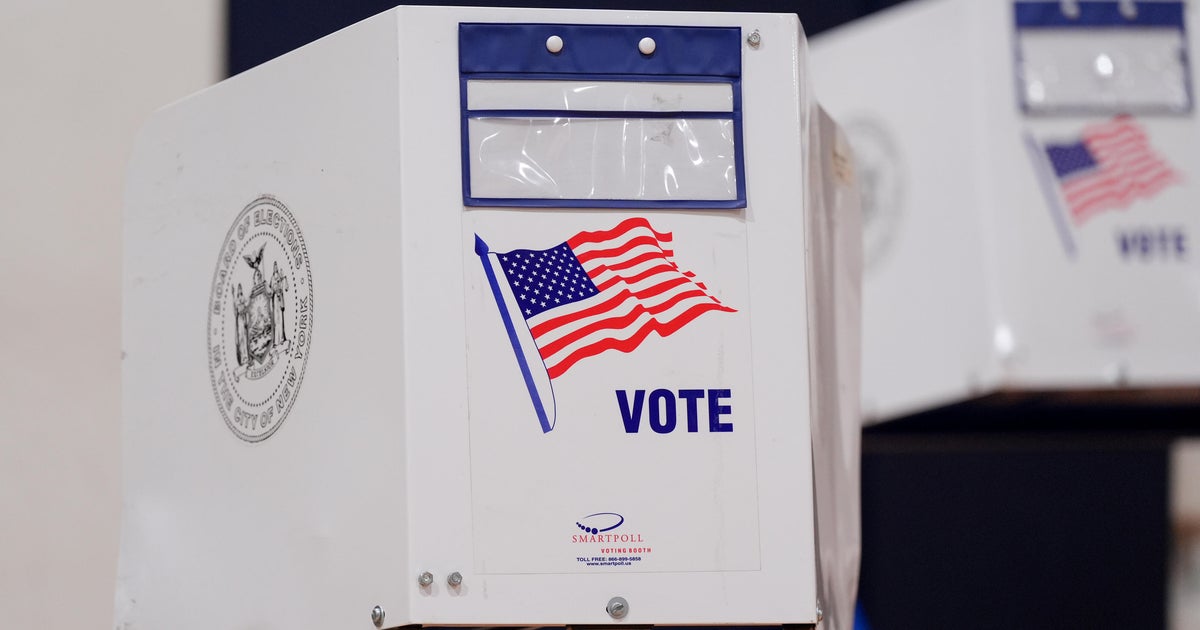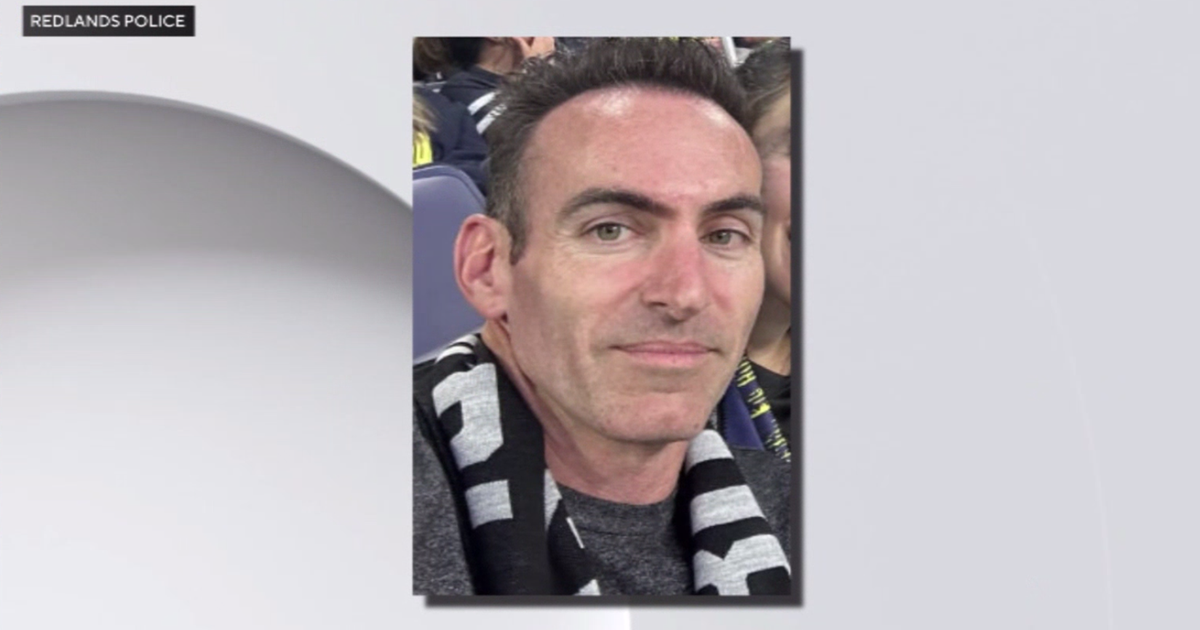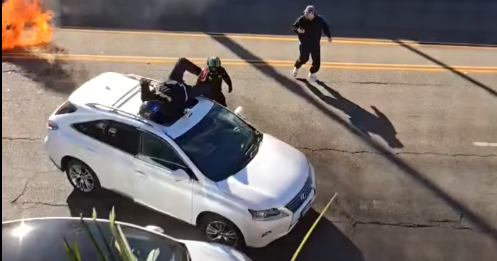After the murder of their son by a neo-Nazi, a California family's extraordinary journey turning grief into hope
The silent stones tell both sides of an epic story, the life and death of Blaze Bernstein. They are a marker of a violent murder, but also a promise in the belief of a better future. A monument to the best of humanity, and the very worst of human behavior.
You can find the stones in a tranquil corner of Borrego Park, in suburban Orange County, California. There are hundreds of them, hand-painted, with messages of tolerance, love and peace. "And they're getting sent to us from all around the world," says Gideon Bernstein. "It's great to see the messaging. It's always positive," adds Gideon's wife Jeanne Pepper.
Jeanne and Gideon are the parents of Blaze Bernstein. On Jan. 2, 2018, then-19-year-old Blaze left his house. Sometime later that night, he was murdered in Borrego Park, stabbed 28 times; his body buried there in a shallow, muddy grave.
By all accounts, Blaze was an exceptional young man — an Ivy League student at the University of Pennsylvania, considering a career in medicine, a writer and budding chef. "I call him a unicorn," Jeanne Pepper tells "48 Hours" correspondent Tracy Smith in an encore of "The Life and Death of Blaze Bernstein," now streaming on Paramount+.
Theirs is a loss they continue to live with to this day. "I think about Blaze all the time, because when I see things, I think to myself, 'what would Blaze be doing now?'" says Pepper.
Blaze died because of something far more fundamental. He was targeted, and according to investigators, slaughtered, because of who he was – a gay, Jewish man. Tony Rackaukas, then the Orange County district attorney, says this was a hate crime. Authorities say Blaze's killer was a neo-Nazi, a member of a small violent hate group called "Atomwaffen," whose beliefs were deeply anti-LGBTQ + as well as virulently antisemitic.
The killer is Samuel Woodward. He had once been Blaze's classmate back in high school. That's about all Blaze and Woodward had in common, according to classmate Raiah Rofsky, who tells Smith, "They were so different … about as different as you could be." Rofsky remembers Woodward's unsettling presence. "He was very quiet -- very withdrawn, didn't really talk to people." Rofsky tells Smith Woodward had a reputation. "Racist, homophobic, sexist."
And when word spread that Blaze had gone missing while home in California on college winter break, and that the last person known to have seen him was Woodward, Rofsky's reaction was immediate. "The only reason I could think of Sam meeting up with Blaze is because either number one, he wanted to hook up with him, or two, because he was planning to murder him." That was January 2018.
Detectives arrested Woodward just 10 days after Blaze disappeared in Borrego Park.
It has been six painful years. There were COVID delays, and a revolving door of defense lawyers who raised questions with the court about Woodward's mental health and ability to defend himself. It all left Jeanne Pepper and Gideon Bernstein frustrated and waiting for justice. "Slow justice is no justice," says Pepper. "It's not fair to victims and it's not fair to the deceased." In 2022, Woodward was found competent to stand trial. Finally, in April 2024, the murder trial began.
Remarkably, after all they have endured, the couple turned their grief into hope. They founded what they call "a kindness movement" – promoting "positivity" and random acts of kindness in Blaze's name. They call their movement "BlazeItForward."
In Borrego Park, where Blaze took his last breath, there is that extraordinary response — the hundreds of hand-painted stones, most left by total strangers, in the memory of Blaze Bernstein.
The silent stones speak of tolerance and Blaze's transformation into a kind of martyr; his murder a marker of rabid hate. His spirit gives inspiration to LGBTQ + people, wherever they live and with whomever they love.
Jeanne Pepper tells Smith, "Blaze's life mattered and he has a legacy, to create good news, to inspire people to be better, to be kinder. And to work on repairing the world, because it's not too late and we can make it better."
On July 3, 2024, Sam Woodward was found guilty of first-degree murder with a hate crime enhancement. On Nov. 15, Woodward was sentenced to life in prison without parole.
